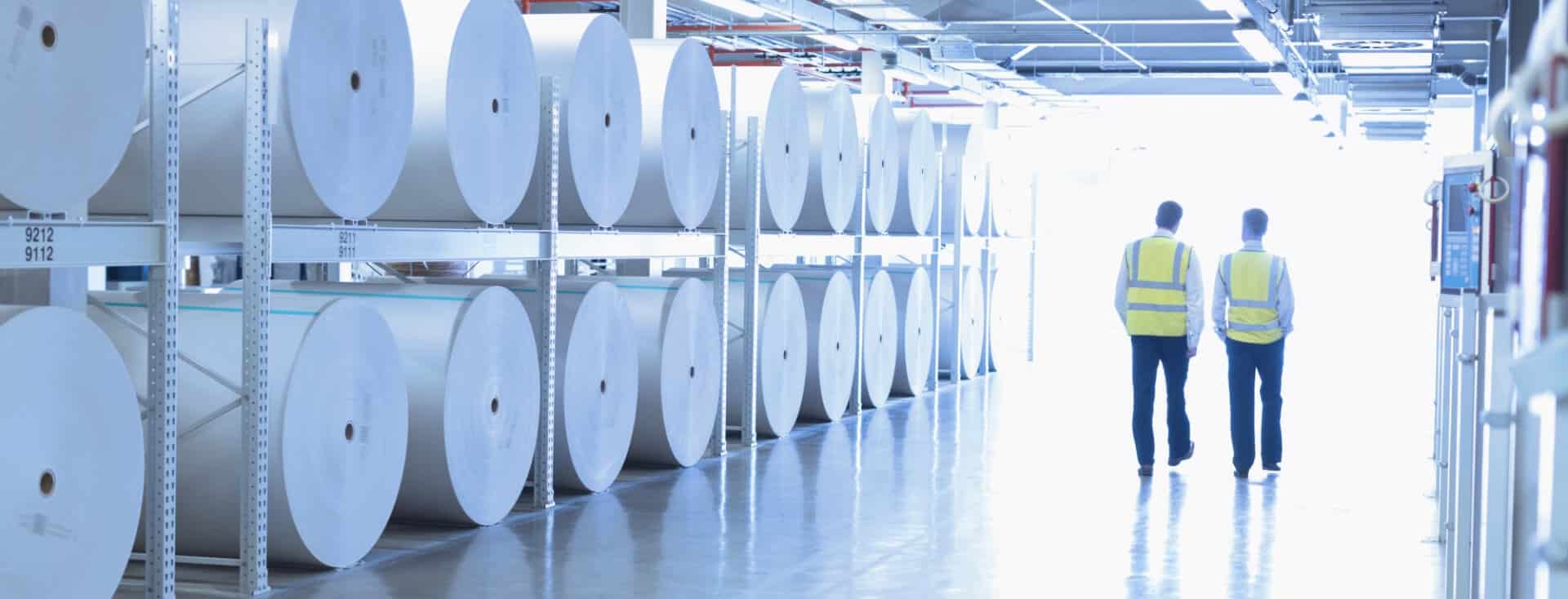Digital transformation is making an impact on the future of paper industry businesses, just as it is throughout all of manufacturing. It should come as no surprise, since the benefits of digital transformation are many. To name a few:
- Increased insight into equipment performance and efficiency through data
- Always-on remote alerts and control over machinery
- Total integration of supply chain functions
The overall effects of these benefits are simple, yet ever-elusive, lower costs combined with faster and more efficient production processes for direct improvements to the bottom line. It is thus clear that paper and pulp manufacturing companies must embrace the digital transformation trend. Throughout the rest of this piece, we will explore why.
Why paper and pulp manufacturers should commit to digital transformation
The pulp and paper manufacturing industry, like every other industry, can reap major benefits from digital transformation, for a number of reasons. Paramount among these is the need to keep up with competitors that are embracing the modern era of automation and gaining unprecedented levels of efficiency through Industry 4.0 innovations and technology. Beyond the impact on production, the paper products manufacturing field is also seeing the impact of digital transformation on the marketplace. It is, in this way, unique among other industries.
While the paper manufacturing industry has seen a lower demand for standard paper used for printed materials in the face of increased online shopping and a shift to digital forms, receipts, record keeping and more, a commensurate increase in demand has occurred for paper and cardboard used for the packaging of online orders, as well as material such as packing slips. Paper industry 4.0 is, therefore, a major opportunity for paper and pulp manufacturers to address the challenges and needs of their customers in this changing landscape.
By embracing the digital transformation, these manufacturers can become more nimble, adaptive, responsive and effective in offering custom solutions that increase efficiency and add value for the end user. Taking a digital-first approach can, for example, help ensure that shifts in demand are addressed efficiently; that upstream and downstream supply chain needs are accurately forecast; and that production remains on track — even in times of peak demand. It is in these last several areas that digital transformation can have the biggest impact on operational effectiveness and success.
By embracing digital technology with a focus on reliability optimization, paper and pulp manufacturers can maximize uptime, reduce or eliminate unplanned downtime, improve overall equipment effectiveness (OEE) metrics, boost productivity, and more. Specific benefits include:
- A proactive, predictive maintenance approach: Data collection and analysis is a tenet of Industry 4.0 and digital transformation. In the paper industry, this step is achieved through the use of sensors to monitor equipment performance to identify the earliest potential signs of potential maintenance needs. Industrial sensors detect subtle variations in temperature, vibration, sound, airflow and more. They can alert maintenance technician teams that an investigation is due — well before costly equipment shutdowns and production delays occur.
- Supply chain integration and innovation: By integrating in-house maintenance and production data with information provided by supply chain partners, paper manufacturers can identify opportunities to maximize value and efficiency when ordering from suppliers as well as supplying to customers. More information means savings in time and cost.
- Inventory optimization: Sensors and data analysis are also incredibly useful in improving inventory processes, facilitating more efficient and effective ordering while helping to guarantee that critical parts are in the right place when they are needed for repairs — reducing or eliminating wait times and expensive emergency services.
- Improved quality: By detecting small fluctuations in equipment performance, operators and technicians can keep machinery running at optimal output quality, reducing quality variance and enabling a much tighter tolerance of acceptable output specs.
At ATS, we offer a wide range of maintenance solutions designed to meet the needs of paper and pulp companies. With decades of experience in optimizing reliability for all types of industrial clients, we are ready to help you embrace the opportunities and benefits of today’s digital transformation. Take the next step in quality, service and overall production efficiency, while maintaining a competitive edge in your field. For more information, contact ATS today.






